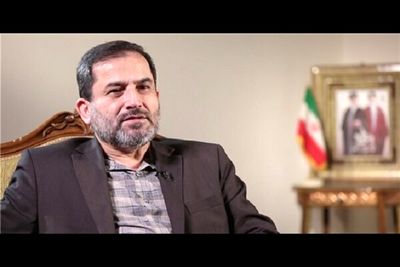Recently, a permanent secretariat entitled “Secretariat of Modern Islamic Civilization” has been established in the Leader’s Representative Office at the University of Tehran, in which, the International Section of this Secretariat holds several international webinars on the subject of “Modern Islamic Civilization” in different countries.
To learn more about the details, we reached out to Mr. Mohammad Mehdi Shariatmadar former Cultural Attache of the Iranian Embassy to Lebanon and Official in Charge of the International Section of the Secretariat of “Modern Islamic Civilization”.
Regarding the way of establishment of this Secretariat and its members, Shariatmadar said, “Some time ago, a group of professors and elites in the field of Islamic civilization started a work spontaneously but after a while, the Leader’s Representative Office at the University of Tehran became aware of this project and threw its weight behind the secretariat.”
What the elites started was to generalize and deepen the discourse of scientific movement, software movement, and Modern Islamic Civilization, he said, adding, “Of course, the issue of Modern Islamic Civilization has always had and still has pros and cons, so that we pay attention to and respect both positions.”
“In many countries, we have scientists and professors who have worked in the field of history of Islamic civilization and have ideas about the revival of Islamic civilization. For this reason, we, in the International Section of this Secretariat, decided to hold a series of international webinars. So far, agreements have been reached with two or three countries, and we are going to negotiate and hold meetings with several other countries.”
The former Iranian cultural attaché in Lebanon stated, “In these webinars, not only Muslim scholars are invited to attend in the meetings, but also any thinker who has worked in the field of history and history of Islamic civilization and has something to say is also invited to these meetings in order to exchange views and express different attitudes.”
It should be noted that these meetings are held at the request of the host country and it is up to the organization of that host country to decide how to hold the meeting, he said, adding that the first webinar was organized by the Center for Studies and Research affiliated with the Holy Shrine of Imam Hussein (AS) and Ibn Rushd College in the University of Baghdad.
The next webinar will be held in Lebanon by the Lebanese Institute of Theological Education and Philosophical Studies, he added.
“We also reached an agreement in Tunisia, but due to the internal situation in Tunisia, the program has been postponed for the time being, and we hope that it will be held soon. We have talked to various institutions in several European countries, but the program has not yet been determined.”
“We are trying to invite professors with different views (Muslim and non-Muslim) in the webinars to broaden the scope of the discussion. For example, in the webinar that was held in Iraq, two Iraqi professors, a Lebanese professor, and several other people from different countries attended the meeting, and presence in this webinar was very strong which was attended by more than 360 people. A certificate of attendance was issued to all those present at the meeting by the Center for the Study of Holy Shrine of Imam Hussein (AS).”
It is very interesting that the discourse of Modern Islamic Civilization has an audience in North Africa, Egypt, Algeria, Morocco, and other countries, he continued.
“Our main goal is to record reports and work done by various institutions in the field of modern Islamic civilization, so from now on, those who want to work in this field can use this information to avoid repeated work,” Shariatmadar pointed out.
At the same time, the discourse of Modern Islamic Civilization has its opponents and we must express our arguments in conversations with the opposition, so that collection of all the information and opinions can be very useful, he said, adding, “At present, Permanent Secretariat of Modern Islamic Civilization is located in Leader’s Representative Office at the University of Tehran. In this Secretariat, other issues such as Iranian-Islamic model of progress, declaration of the Second Step of the Islamic Revolution, Islamic humanities and jurisprudence of the Establishment are also discussed.”
“Another program that we have put them on the agenda is that we are in contact with the institutions that worked in this field to integrate all the information. Then, in December of this year, an exhibition of epistemological achievements in the field of theorizing of modern Islamic civilization will be held in order to take the first step in presenting a technical report on the work done in this field.”
“I emphasize that our activity is to collect the work that has been done so far with the aim of generalizing and deepening the discourse of Modern Islamic Civilization, otherwise, it is not scheduled to launch a new institution. We are going to present all the information together in this Secretariat to prevent repetition and parallel work,” he concluded.
Source:Tehran Times

